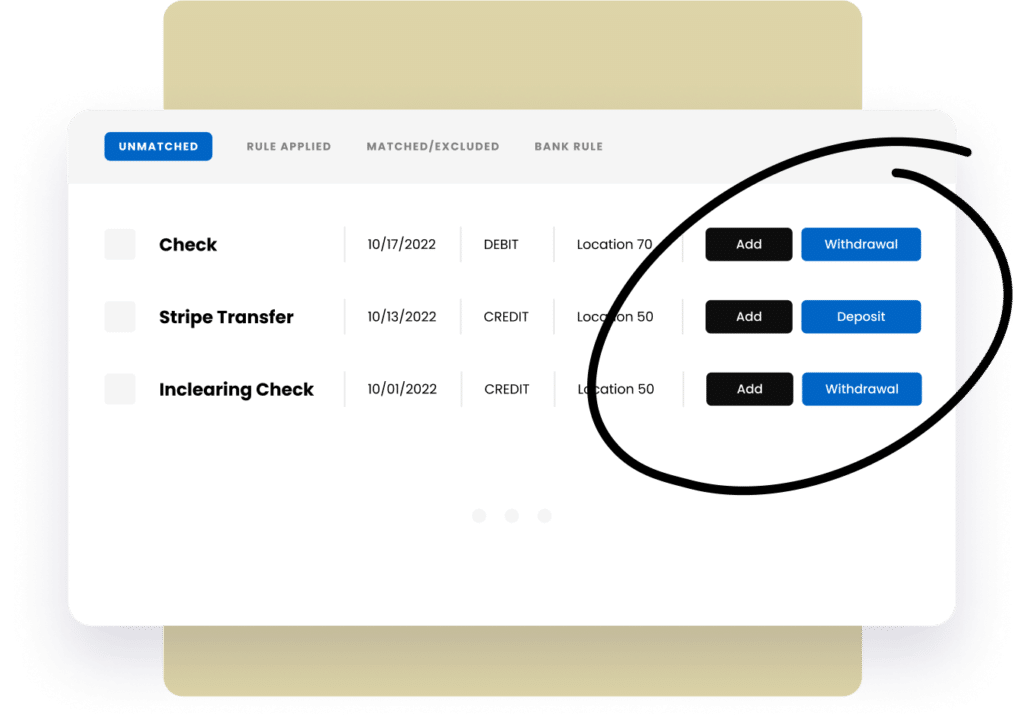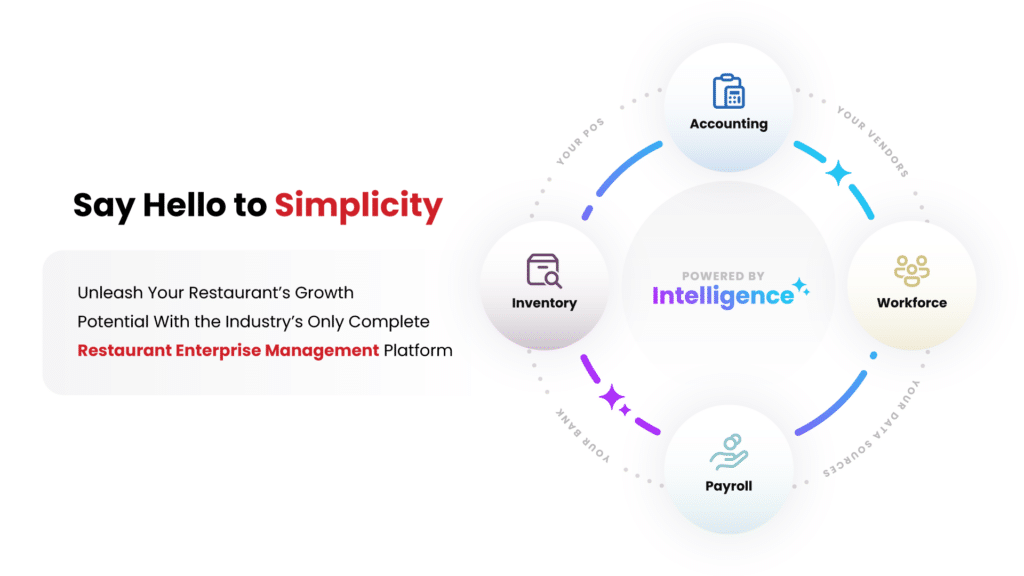By visiting our site, you agree to our privacy policy regarding cookies, tracking statistics, etc. Read more
Accounting software is essential for organizations of all sizes. These tools simplify financial management, improve accuracy, and allow for real-time tracking of key performance indicators. With so many options to choose from, finding the right solution can feel overwhelming. This guide explores the top accounting software, weighing their costs, benefits, and drawbacks to help you make the best choice.
A top-tier accounting software should offer features that cater to the diverse needs of businesses. These include:

Restaurant365 is a specialized accounting solution tailored for the food service industry. It streamlines restaurant management by combining accounting, inventory management, scheduling, and more BOH operations into a single platform.

Restaurant365 offers a range of plans and packages that vary in price based on certain offerings. Learn more about pricing here or compare our plans to see what works best for your business.
Sage Intacct is a cloud-based financial management solution ideal for mid-sized businesses seeking a comprehensive approach to accounting. It is known for its depth of features and scalability.
Pricing for Sage Intacct starts at $15,000 per year, reflecting its positioning as a premium product for businesses that require advanced functionality.
NetSuite is an all-encompassing enterprise resource planning (ERP) solution, which includes accounting capabilities among other business functions. It is suitable for companies that require a robust, unified platform.
The pricing for NetSuite starts at approximately $999 per month, with additional user fees. Costs can escalate based on the level of customization and modules required.
QuickBooks is one of the most popular accounting software options, catering to small and medium-sized businesses. It provides an easy-to-use interface and a variety of plans to suit different needs.
QuickBooks pricing starts at $25 per month for the basic plan, with more advanced plans costing up to $180 per month.
Lightspeed is primarily a POS system that includes integrated accounting features, making it a suitable choice for retail and hospitality businesses.
Pricing begins at $69 per month for the basic package, with advanced accounting features available at higher subscription levels.
Xero is a cloud-based accounting software that caters primarily to small businesses and startups, offering a range of tools for managing financial operations.
The pricing starts at $13 per month for the basic plan, with premium plans costing up to $70 per month.
FreshBooks is designed with small businesses and freelancers in mind, offering simple yet effective accounting tools.
The Lite plan starts at $17 per month, with additional features available in higher-tier plans that go up to $55 per month.
For restaurant owners, Restaurant365 emerges as the top choice due to its industry-specific features. Its integration with POS systems, recipe costing, and inventory management tools make it a comprehensive solution for managing a restaurant’s financial and operational needs.

For small businesses, QuickBooks stands out. Its affordability, user-friendly interface, and ability to grow with the business make it an ideal option for startups and smaller companies. The software’s variety of integrations further enhance its appeal. However, for small restaurant businesses we recommend Restaurant365 accounting software.

NetSuite is the best choice for enterprises requiring a robust solution that covers not only accounting but also other business functions like inventory, CRM, and project management. Its scalability and customizable features make it suitable for large organizations with complex financial requirements. On the other hand, for large restaurant groups Restaurant365 accounting is still the clear choice.

Wave is one of the few reputable free accounting software options, offering a range of features at no cost. While it may lack some of the advanced functionalities of paid software, it is a viable choice for freelancers or very small businesses. Additional cheap accounting options include the lite version of Freshbooks and the basic version of Xero, which both come with limitations.
Blog Menu
See why more than 40,000 restaurants use Restaurant365
Choosing the right accounting software involves evaluating the unique requirements of your business and considering factors such as budget, scalability, and ease of use. Whether you are a freelancer, a small business owner, or a large enterprise, there is a solution tailored to fit your needs. From the robust capabilities of NetSuite to the industry-specific tools offered by Restaurant365, the options are plentiful, ensuring that every business can find a solution to streamline financial operations and drive growth.
Share this blog:
500 Technology Drive, Suite 200
Irvine, CA 92618
Restaurant365 bridges the gap between accounting and operations by centralizing all data, helping restaurant operators to become more efficient, accurately forecast, and tackle any challenge or opportunity with speed and accuracy.